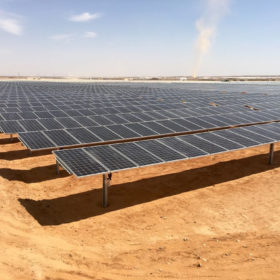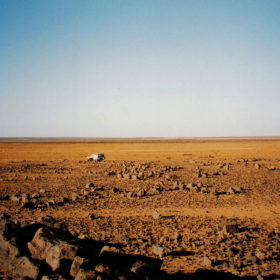Update: Jordan’s unveils successful bids under second tender
The successful bidders under Jordans second 200 MW PV tender round have been announced. Two from Saudi Arabia have generated hopes for a spillover of the uplifting solar mood to the nearby Arab state.
Jordan’s second PV tender leads to record low tariffs
Jordan’s Ministry of Energy and Mineral Resources has chosen the winners of its second tender round. Overall, four 50 MW PV plants have been selected at record low tariffs, serving to highlight increased efficiencies, falling equipment costs and grid parity advances in the PV industry.
France announces tenders for PV and battery storage systems
The announcement from France’s Ministry of Ecology, Sustainable Development and Energy of a tender calling for solar PV and battery installations in the French overseas territories adds to the storage technology craze of the previous days.
Turkey approves a further 302 MW in PV projects
After awarding 228 MW of PV projects in January, Turkey approved a further 302 MW last week, thus paving the way for the first utility-scale solar installations in the country. The key question now concerns the realization of the projects.
Italy links to Malta
Italy has linked to Malta via a new electricity interconnector inaugurated last week. The new 120 kilometer-long subsea line offers Malta an opportunity to boost its renewable energy and marks Europe’s latest step in fortifying the bloc’s Energy Union.
Jordan’s Science and Technology University tenders 5 MW of PV
Jordan’s University of Science and Technology is currently tendering the engineering, procurement and construction of a 5 MW solar PV plant on its premises in the city of Irbid. Apart from Jordan’s universities, where the installation of solar PV has emerged as a trend, the technology is also gaining ground among other educational and cultural insitutions, including schools and museums.
Major power blackout hits Turkey
News that Turkey’s economy grew more than expected in Q4 2014 coincided with a major power outage a couple of hours later, indicating the shaky underpinnings of the country’s future development.
Turkey to tender 302 MW of PV in April
While the country also licensed 228 MW of solar PV in January, industry watchers warn that high tender fees could thwart Turkey’s already lethargic solar PV deployment.
Israeli election matters for PV industry
Tuesday’s elections will lead to the formation of a new government that will decide whether Israel will meet the high expectations of becoming the region’s real PV powerhouse or simply continue its favorable but not exactly enthusiastic PV policy.
Greece added just 13 MW in 2014
Despite technically reaching grid parity, Greece installed a mere 13 MW of new solar PV in 2014, according to official statistics released last week.



